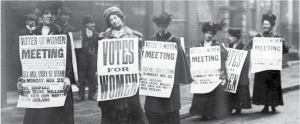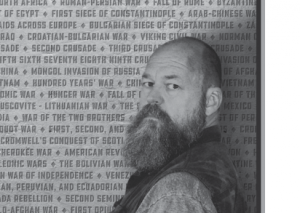At 100 years
On August 26, 1920, Congress ratified the 19th Amendment to the US Constitution:
“The right of citizens of the United States to vote shall not be denied or abridged by the United States or any state on account of sex.”
Over the next few months, we will highlight the work of women and men who earned the right for women to vote and paved a path to equality. Suffrage is the right to vote in public elections. It has nothing to do with suffering – unless you think the wrong person was elected.

Where it all began
Many who worked for suffrage were involved in the abolition movement. The first organized convention in support of women’s rights took place in Seneca Falls, NY in July 1848. Conveners Elizabeth Cady Stanton, Lucretia Mott, Carrie Chapman Catt, and others believed that women should have the right to vote on laws that affected them. A “Declaration of Sentiments,” patterned after the Declaration of Independence, outlined the rights that women should be entitled to as US citizens. It was signed by 68 women and 32 men.
Lived values help us focus on what’s vital
Early suffragists were grounded by the values that were important to them. They did not see voting as their primary goal; rather, they viewed suffrage as an opportunity to influence decision- making through political engagement and civic involvement.
Suffragists were willing to make sacrifices to accomplish their goals. They demanded accountability and demonstrated Integrity, tolerance, and respect as they made speeches, held marches and rallies, and conducted silent vigils. Some went to jail.
Building on what the suffragists started
Our work is still not done. Empowering women and promoting gender equity demands our attention and action. We need to finish the work begun by pioneering suffragists. We can learn from how specific suffragists pursued their goals and how their actions influenced the freedoms women have today. Awe too can make a difference.
Efforts are being made to establish a South Sound Womxn’s Alliance & Action Network (SSWAN) that would be a communication hub. It would offer a common community calendar and website, so organizations can collaborate on training and events, support one another’s activities, and avoid scheduling conflicts. It seeks to involve and learn from all generations, genders, and ethnicities.
We can make a difference when we join forces and work together
to end gender-based violence,
to ensure equitable and quality education and health,
to promote economic empowerment, and
to ensure full equality in public policies affecting all genders
The Zonta Club of South Puget Sound is launching the South Sound Womxn’s Alliance & Action Network (SSWAN) to bring together women and girl leaders and gender equity activists. We will be announcing a community discussion about how we can collaboratively influence changes that empower women and lead to greater equity for all. Stay tuned. In the meantime, check the WIP Special Events -there’s a community conversation on voting and a celebration of International Women’s Day.
Carolyn Woodling is active in the League of Women Voters, NOW and the Zonta Club of South Puget Sound.

Be First to Comment